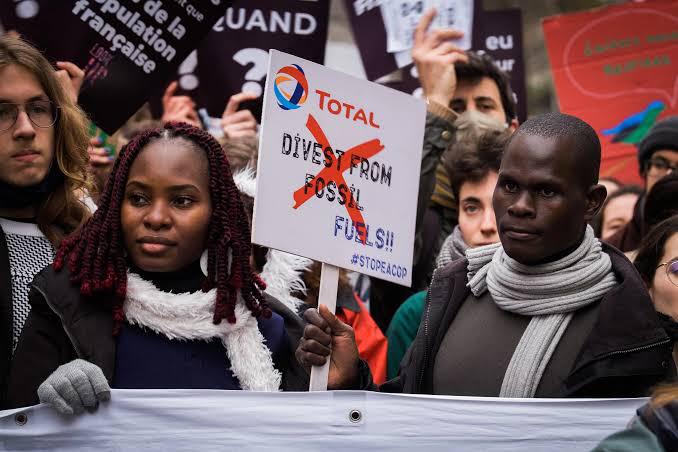Standard Chartered Plc, a London-based bank, has announced that it will no longer finance the controversial East Africa Crude Oil Pipeline (EACOP) project, which has been estimated to generate seven times more CO2 emissions each year than the entire country of Uganda.
The decision comes as a victory for climate activists who have been targeting banks and insurance companies supporting the project.
The EACOP project, planned to carry oil 900 miles from the fields of western Uganda to the coast of Tanzania, has become a cultural flashpoint similar to the Line 3 and Dakota Access pipelines in the US.
Protesters warn that it threatens local wildlife populations, including lion and hippo habitats, and that it would displace communities and trigger a dangerous spike in emissions.
Environmental groups in Uganda have been voicing their concerns about the pipeline for years.
They argue that the pipeline poses a significant threat to the environment and local communities, and that it undermines the country’s commitments to reducing greenhouse gas emissions under the Paris Agreement.
One of the groups leading the fight against the pipeline is the Africa Institute for Energy Governance (AFIEGO).
The group has been working to raise awareness about the environmental and social impacts of the pipeline, and to pressure financial institutions not to fund the project.
Protesters in Uganda have faced significant challenges in their efforts to stop the pipeline.
The government has been accused of using violence and intimidation to silence opposition to the project.
In 2020, three activists were arrested and charged for their role in organizing protests against the pipeline.
The charges were eventually dropped, but the incident highlighted the risks faced by those who speak out against the project.
Despite these challenges, environmental groups and activists in Uganda continue to push back against the pipeline.
They are calling for a transition away from fossil fuels and towards renewable energy sources, and for greater investment in sustainable development in the region.
The decision by Standard Chartered not to finance the pipeline is a significant victory for climate activists and environmental groups, and sends a strong message to other financial institutions that they should consider the environmental and social impacts of the projects they fund.
As the world continues to grapple with the climate crisis, it is critical that we prioritize sustainable development and take bold action to protect our planet for future generations.

